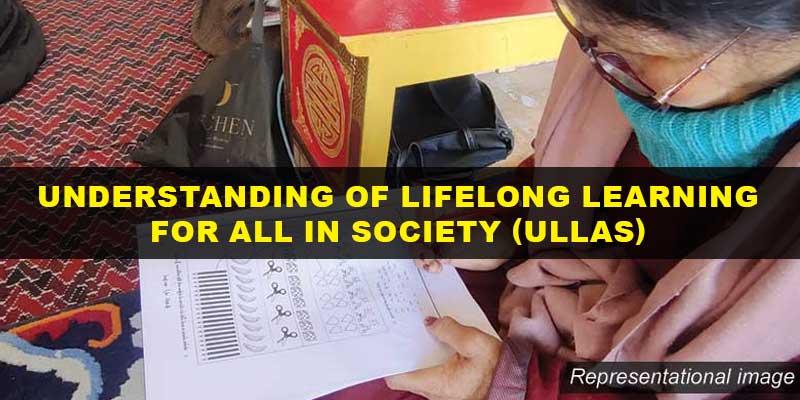- India
- May 31
- Sreesha V.M
After Mizoram, Goa achieves 100% literacy under ULLAS
• Goa has attained 100 per cent literacy under the ULLAS Nav Bharat Literacy Programme, Chief Minister Pramod Sawant said on May 30.
• While the Periodic Labour Force Survey (PLFS) 2023-24 recorded Goa’s literacy rate at 93.6 per cent, the state’s own survey confirmed it has now surpassed this figure, achieving full functional literacy.
• On May 20, Mizoram Chief Minister Lalduhoma officially declared Mizoram a fully literate state under the programme.
• As per the 2011 Census, Mizoram recorded a literacy rate of 91.33 per cent, ranking third in India. Building on this strong foundation, the ULLAS–NILP was implemented to identify and educate the remaining non-literate individuals.
What is ULLAS scheme?
• The introduction of NEP 2020 says “The global education development agenda reflected in the Goal 4 (SDG4) of the 2030 Agenda for Sustainable Development, adopted by India in 2015 seeks to ensure inclusive and equitable quality education and promote lifelong learning opportunities for all by 2030”.
• In order to ensure literacy and numeracy among all youth and adults both men and women aged 15 years and above, in India, the government has been implementing various schemes from time to time that have significantly converted non-literates into literates.
• The government of India launched a Centrally Sponsored Scheme called New India Literacy Programme (NILP) in April 2022 to cover all the aspects of Education for All.
• This is popularly known as Understanding of Lifelong Learning for All in Society (ULLAS).
• It focuses on imparting functional literacy, including reading, writing and numeracy skills to achieve the target of 100 per cent literacy nationwide by 2030.
• It has been approved by the government with a financial outlay of Rs 1,037.90 crore for financial years from 2022-23 to 2026-27.
• The primary objective of the scheme is to empower all adults aged 15 years and above, who have not had the opportunity to educate themselves, and to enable them to contribute to the growth of the country.
• The initiative is poised to revolutionise education and literacy across the nation, by fostering a learning ecosystem that reaches every individual, bridging the gaps in basic literacy and critical life skills.
It not only allows the learners to acquire reading, writing and numeracy skills, but also to enrich them with an understanding of:
i) Critical life skills including financial literacy, digital literacy, commercial skills, health care and awareness, child care and education, and family welfare.
ii) Vocational skills development with a view towards obtaining local employment.
iii) Basic education including preparatory, middle, and secondary stage equivalency.
iv) Continuing education including engaging holistic adult education courses in arts, sciences, technology, culture, sports, and recreation, as well as other topics of interest or use to local learners, such as more advanced material on critical life skills.
• The scheme aims to cover a target of five crore non-literates in the age group of 15 years and above.
• The scheme is being implemented through volunteerism, promoting social responsibility and a sense of duty.
• Furthermore, the learners are encouraged to access the content in regional languages on DIKSHA portal as well as through the ULLAS mobile app.
• ULLAS continues to act as a beacon of hope, illuminating the path to education and personal growth.
• The curriculum, therefore, is designed keeping in mind the socio-cultural-economic context of the learners, which allows for greater affinity and pride amongst them.
• ULLAS also incorporates experiential learning in its teaching methods for volunteer teachers, making the entire process more engaging and meaningful, simultaneously providing practical value to learning.
• Along with this, the scheme acknowledges the efforts of the learners as well as the volunteer teachers through certificates which indubitably boost their confidence and motivate them to keep moving forward in life.
• This scheme is much more than a literacy programme. It is a movement, a drive towards a bright future and empowered citizens.
• The learners who embark on this journey not only learn to read and write but are also able to make a significant difference in their lives, their livelihoods and their communities.
(The author is a trainer for Civil Services aspirants.)

